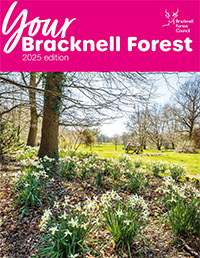
As a public body, we have a duty to present the facts to our residents and counter misinformation.
As some online posts containing misinformation are continuing to circulate regarding the Afghan Resettlement Programme (ARP), we have given a factual update below.
We would urge residents to check for the facts before accepting posts and narratives as the truth.
Our guide on misinformation (unintentional false or inaccurate information) and disinformation (false information deliberately intended to mislead) provides useful information on how to spot both.
What is the Afghan Resettlement Programme (ARP)?
This is a UK Government resettlement scheme, which was announced by the Defence Secretary in December 2024.
The ARP offers relocation and resettlement to Afghan citizens, and their immediate family, who:
- worked for or with the UK Government to support the UK mission in Afghanistan
- are considered vulnerable or in danger from the Taliban
- assisted UK efforts in Afghanistan
Alongside British personnel, many Afghans also worked with commitment and courage to support the UK mission in Afghanistan. This includes members of Afghan specialist units who fought valiantly alongside UK personnel, with some giving their lives and others suffering life-changing injuries.
Resettlement schemes are distinct from asylum, as those eligible for assistance under these schemes include people who played a key role supporting Britain’s mission in Afghanistan, often at great personal risk.
How many people will be coming to Bracknell Forest as part of the ARP?
320 new residents have arrived in family groups as part of the ARP. They arrived in 3 groups during late spring and early summer 2025.
Families are expected to stay in their transitional accommodation for a maximum of 9 months. As the original families move out, we will get new families, but there will not be more than 320 people staying in the accommodation at any one time.
At the moment, we understand that we are unlikely to receive large cohorts all at the same time again.
Are they illegal immigrants?
No, they are not illegal immigrants, asylum seekers or refugees.
They have indefinite leave to remain as granted by the UK Government. Indefinite leave to remain means that the UK is now home for the families and they are regarded as settled in the UK.
How many people have already moved on from Bracknell Forest?
As of early July 2025, 65 people who arrived through the ARP have moved out of the borough – that’s 16 families. We have not received any new families since the original 3 cohorts arrived and we are not expecting any new arrivals imminently.
Will this affect the housing list?
Our housing policy requires a 2-year residency for the housing 'waiting list’, so people on the ARP do not qualify to join. The housing policy prioritises:
- veterans
- care leavers
- people with medical needs or a disability
- those who are overcrowded
We can also confirm that over the past 2 years the number of people on the housing register has dropped (on average, 19 per cent). Anyone who needs housing support will continue to receive the help they are entitled to, regardless of the ARP.
Additional information
Households that present as homeless and are owed a duty of either homeless relief or homeless prevention, will be accepted whilst this duty is owed (usually 56 days) as per the statutory guidance.
In Bracknell Forest, applicants who qualify to join on this basis will be placed into band E, which is the lowest band.
A homeless prevent duty is owed if an applicant is threatened with homelessness within 56 days or has been served with a valid section 21 notice if privately renting.
A homeless relief duty is owed if an applicant is actually homeless.
If an applicant goes onto be awarded the full homelessness duty after the homelessness relief duty has ended, they would be moved to band C.
Our guests are not currently homeless, or threatened with homelessness, and therefore do not currently qualify to join.
What if they present as homeless?
The expectation is that during the 9 months of transition, people secure employment and a private rented property.
They work with dedicated housing support specialists as part of the Find Your Own pathway part of the scheme, to make sure they have every opportunity to live independently in the UK, which is now their home.
If someone presents as homeless after the 9-month transition period, then we have a statutory duty to help them.
However, homeless households must wait in turn like everyone else. They will not bypass the waiting list. There is one housing register for Bracknell Forest – not a general one and a homelessness one.
Please note that people can present anywhere in the country as homeless, this has been the case since 2018 with the introduction of the Homeless Reduction Act.
What is the Find Your Own pathway?
This is part of the ARP whereby people are supported to find their own property in any part of the UK. For most people this will be in privately rented accommodation.
A support worker is allocated to each case and:
- helps people to understand the requirements
- helps with finding a suitable home
- contacts the necessary organisations to help secure a property
The caseworkers are paid for by central government, not the council.
Will they be given social housing if they present as homeless?
Homeless households must wait in turn like everyone else. They do not bypass the waiting list for social housing.
It should be noted that homeless households are not guaranteed social housing.
Bracknell Forest Council does not own the social housing stock for the borough. We manage the housing list and help households who are either threatened with, or who are homeless, find accommodation through a personal housing plan, which includes numerous routes to alternate accommodation.
Our duty to help homeless households can be discharged through an offer of suitable private rented accommodation. We often help homeless households find suitable rented accommodation instead of social housing.
What band of priority would they be if presenting as homeless?
The new housing allocations policy prioritises social housing for people with:
- medical needs
- disabilities
- veterans
- overcrowding
- care leavers
Our bands run from A (most urgent need) to band E. If someone on the ARP presents as homeless they will be placed into a band E, with the lowest priority for housing.
Will people on the ARP get housing priority over veterans?
No, the council’s housing policy very clearly gives veterans high priority for housing. Recent media coverage has suggested that the needs of veterans are not being met due to pressure from the ARP. This is simply untrue and confuses two very different systems.
The people on the ARP are in transitional accommodation, commissioned and paid for by the MOD and central government.
This has nothing to do with the availability of social housing locally and does not affect veterans on the housing list.
The two are not interlinked.
However, veterans (and others on the list) need to bid for properties within their assessed criteria, based on the information they provide us. If they bid on properties outside their eligibility, then it is possible they will be unsuccessful in securing social housing.
We will support those on the housing list as much as possible, but we must stick to the published criteria and eligibility based on need rather than preference.
How many people are likely to present as homeless after the 9-month transition?
We simply do not know. While there are some national statistics available, we cannot compare national and general data to what may happen in Bracknell Forest. It would be remiss to even try to do so as there are so many variations that influence statistics.
What we do know is that people are already moving out of the borough and it’s possible more may do so.
We also know that we have an incredibly diligent team of experts (paid for by external funding and not council tax) working tirelessly to support our new families and a separate team that works extremely hard on preventing homelessness.
Are schools facing pressure because of the new Afghan families?
All children in our schools should have the opportunity to learn, flourish and thrive, regardless of their background, race, religion, creed or ability.
Schools are being supported by the council constantly and consistently to make sure they have the information and resources needed to welcome new pupils as well as support existing pupils.
Funding is being provided by central government for this support.
Schools know who to speak to if they are feeling overwhelmed or need additional resources, including staff.
We are truly humbled at how our schools, including staff, pupils and parents and carers, have embraced and encouraged children from the ARP.
We have heard wonderful stories of how school communities have gone out of their way to support the new children – everything from schools offering special welcome assemblies through to parents and carers purchasing lunchboxes for the new children.
If a parent or carer is concerned about the education or support their child is receiving, then the first place to raise it should always be with the relevant school.
You can find more information on the relevant school's website and in their Special Educational Needs and Disabilities (SEND) Information Report.
Please note, headteachers are responsible for managing and allocating school resources to best meet the needs of all pupils. We can confirm that class sizes across our schools remain within typical ranges and as per established guidelines, ensuring a conducive learning environment for pupils.
